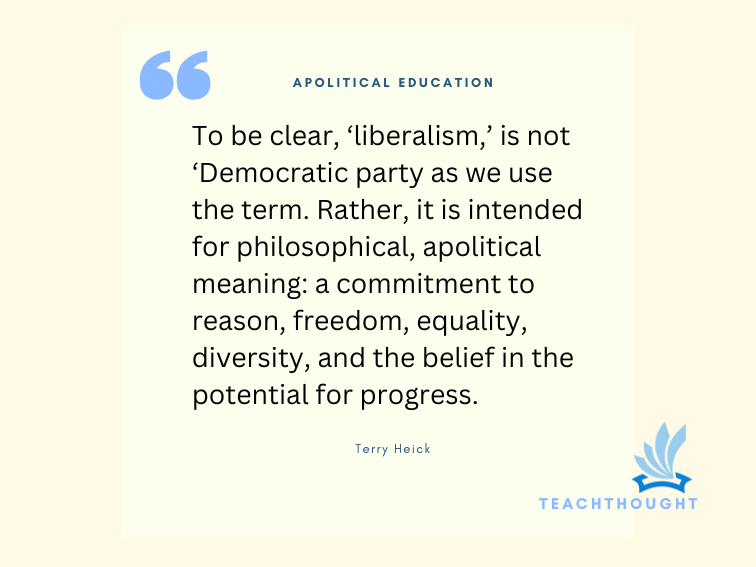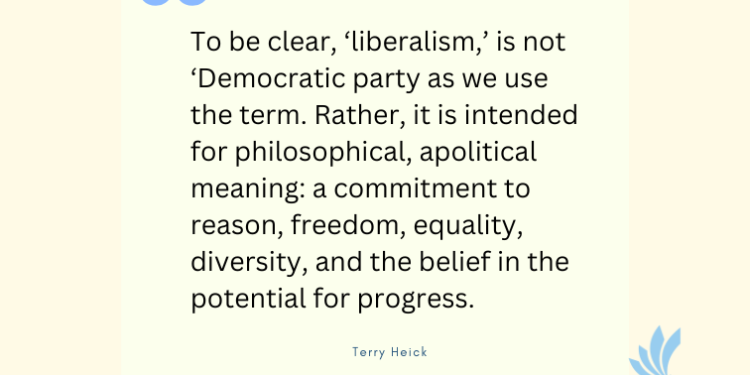

Standing for Critical Thinking and Progress
by Terrell Heick
At TeachThought, we have always focused on promoting critical thinking cross for use in ‘human’ applications–namely, people (i.e., education stakeholders) and places (i.e., communities).
Our mission has been apolitical by design—centered on improving thought, education, and human potential without aligning with political ideologies or factions.
However, recent events in the United States have made remaining entirely apolitical a luxury we can no longer afford.
The Idea of Liberalism in Education
This brings us to the idea of liberalism.
To be clear, ‘liberalism,’ is not ‘Democratic party as we use the term. Rather, it is intended for philosophical, apolitical meaning: a commitment to reason, freedom, equality, diversity, and the belief in the potential for progress.
Liberalism, in this sense, prioritizes open-mindedness and values dialogue, inquiry, and self-determination—all inherently central to education itself.
Education seeks to empower individuals, enabling them to think critically, embrace learning, and better themselves and their communities.
These are liberal ideals—not in a partisan context but as intellectual principles foundational to knowledge, democracy, and justice.
Why Take A ‘Stance’ At All?
It’s impossible to champion critical thinking while staying silent about efforts to suppress individual thought, reduce diversity, dismantle critical federal departments, and resist the very progress education aims to sustain.
The current circumstances demand resistance to policies that undermine civil liberties, challenge inclusivity, and threaten the foundations of education itself.
A Call for Critical Thinking
I/we oppose measures that restrict inquiry, diminish diversity, and compromise the integrity of education.
As an organization, we strive to promote and advocate for:
Critical Thinking: The ability to question, analyze, and synthesize knowledge in the face of growing misinformation and partisanship.
Diversity (Cultural and Intellectual): A recognition that inclusivity enriches learning, creativity, and community understanding.
That these ideas would be at all controversial might speak to the need for them to be advocated for and supported.
In increasingly technologically advanced and socially fractured times, the role of critical thinking is–well, critical.
Issues like the misuse of social media, politicized partisanship, and dwindling support for public education require a response rooted in rationality, evidence, and humane values.
Our Position
While we remain an organization focused on education, our commitment to critical thinking calls us to speak against the conditions eroding trust, inclusivity, and progress.
From the deliberate weakening of federal institutions to decisions that limit diversity and suppress access to opportunity, we stand firmly against such measures.
The current administration’s policies in the United States represent a particularly urgent threat to these essential values, and I personally am compelled to oppose them as part of broader advocacy for education and informed, rational discourse.
Regardless of the circumstance or context, our goal will emphasize the power–and necessity– of critical thinking in navigating the challenges of our time while maintaining respect for diverse voices, experiences, and beliefs.
Terrell Heick
Director, TeachThought
Founder & Director of TeachThought



















